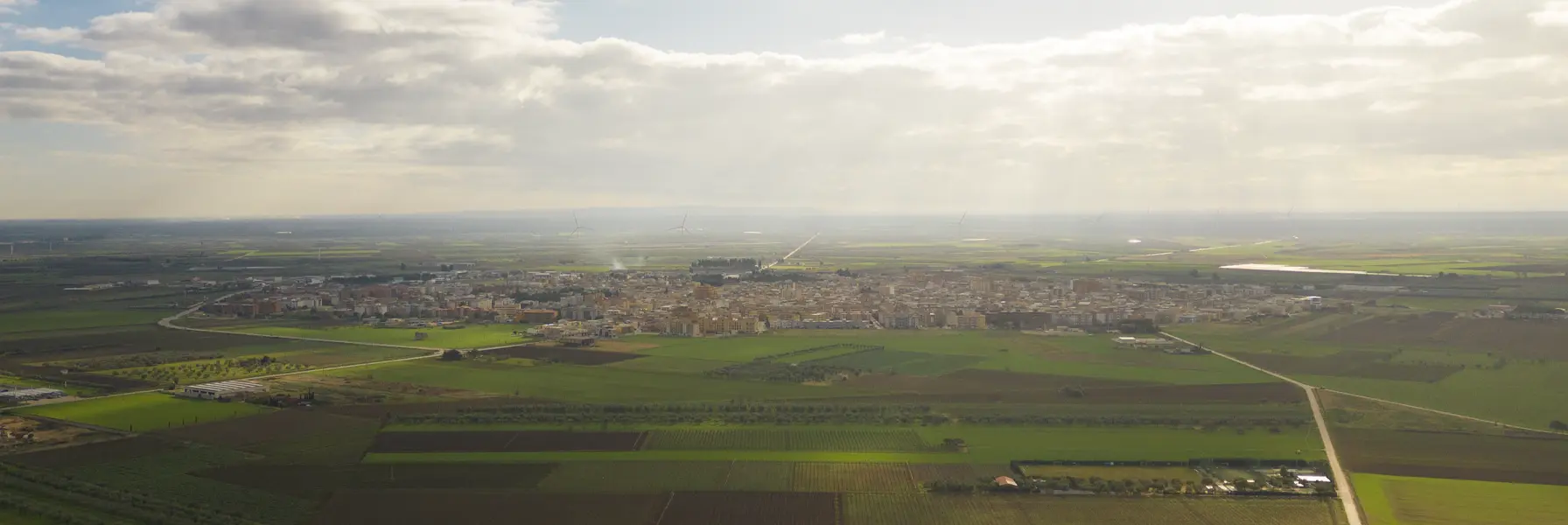HISTORY AND TERRITORY
PALATINO
THE DAUNIA WINES
BETWEEN HISTORY
AND TRADITIONS
Oak and beech forests, villages with stone houses that climb the hills. Castles, cathedrals, works of art that alternate with the dense greenery of the landscape in a mysterious land that extends from Puglia to the border with Basilicata and Campania: this is Daunia.
A land that immediately evokes history, mythology and charm in a harsh and sweet territory at the same time and rich in tradition, culture, and natural resources in a generous and fertile soil.
Plain, mountain and sea; elements that are expressed here, in a perfect synthesis in our wines. The winemaking tradition of Daunia is rich and ancient and the whole territory is covered by the Daunia PGI denomination. The winemaking tradition of this area is ancient, having been involved in the cultivation of vines since Roman times.



The pilgrims, passing through to embark for the Holy Land, toasted with the wine of these areas and in the village of Monte San'Angelo, on the occasion of the grape harvest, propitiatory parties were organized.
The calcareous and clayey soils have in fact represented the perfect habitat for some white grape varieties; this is the case of Bombino Bianco which, vinified in purity, gives life to particularly delicate whites with aromas typical of the Mediterranean scrub and with a persistent, savory taste and the right acidity.
But this land is also home to elegant reds, from brilliant garnet red, with a kaleidoscope of aromas and flavors and fruity and fresh rosés that are obtained from the red grape variety par excellence of this land, Nero di Troia.
Important is the diffusion in the territory of Nero di Troia, an indigenous vine vinified mainly in purity and at the origin of wines that lend themselves well to ageing.
"The whole of Puglia is a land of passage of winds and clouds that gallop between sea and sea. The vine, the olive tree and the almond tree are the plants of Puglia, and also its main wealth"
Guido Piovene

Historically, Daunia and its inhabitants felt the influences of Greek civilization and Magna Graecia starting from the end of the 5th and the beginning of the 4th century BC. The Hellenization of Daunia was accentuated by Alexander the Molossian during his military campaign in Italy in 333-334 BC.
The origin of its name is rooted in the legend of the Greek hero, friend of Ulysses, Diomedes. It is said that Diomedes, during his return journey from the Trojan War, decided to stop in Daunia, fascinated by the daughter of Lucomone Dauno, Leuceria. With Roman colonization the city of Lucera therefore became the geographical and historically strategic center of Daunia which, located on a hill, dominated the plain, the famous tableland of Puglia, and a defense stronghold of the area. In the following centuries this city was a military and economic center for the Samnites, the Romans, the Saracens, the Angevins up to the Spanish.
Evidence of how Lucera was, in Roman times, counted among the most important cities in Puglia is the Augustan amphitheater built between 27 BC. C. and the 14th AD. C.
Second city of Daunia is Troy; founded by Catapano Basilio Bojannes when he arrived in Puglia, the city stands on the ruins of Aecae where, in 217 BC. C., Quinto Fabio Massimo took office to closely monitor the movements of Hannibal who retreated to Vibinum (Bovino).
With the advent of the Roman Empire the name "Daunia" and the inhabitants themselves "Dauni" gradually disappeared; from then on the Daunian territories, together with the Peuceti ones and part of the Messapi ones, will definitively define themselves as Apulia and all its inhabitants consequently Apulia.

